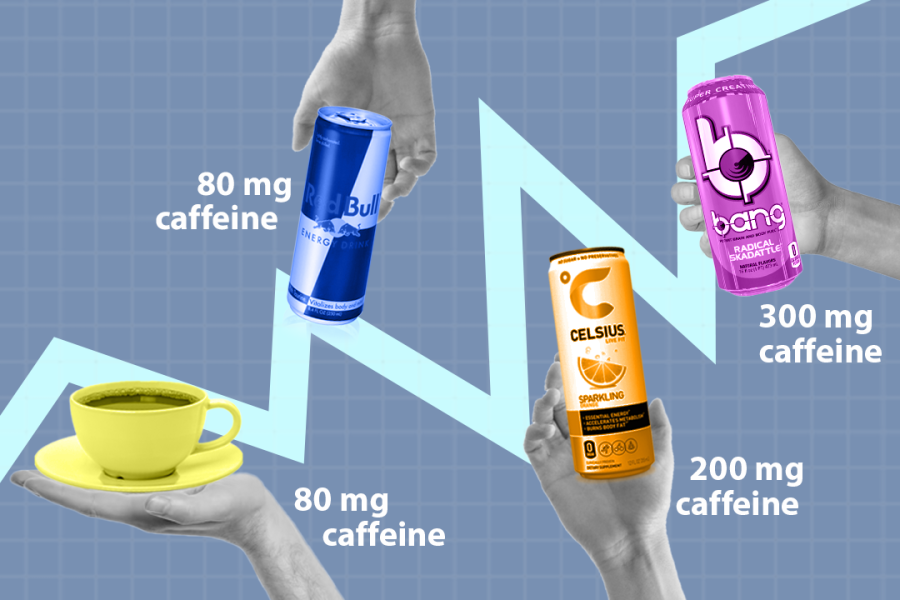An iced coffee next to you as you study for your final exam. A crushed Red Bull can sits in the cupholder of your hand-me-down car. A friend sips a Monster energy drink as you laugh in your room together. These little moments share a glimpse into how caffeine has become so ingrained in the lives of teens.
It’s no secret that young adults have been consuming caffeine for years, but now more than ever, the popularity of caffeinated refreshments (energy drinks especially) has skyrocketed. But this raises an important question: do young adults even realize what caffeine is or how it works?
To answer this question, I made an effort to gather information on the knowledge that young adults have regarding caffeine in the Quakertown area. In the survey (consisting of 104 respondents aged 13-18+), 59.6% admitted to being unsure or completely unaware of how caffeine functions. And with that, 40.4% believed that they were fully aware and were willing to explain their knowledge. But interestingly, only 43% of those explanations were accurate in their descriptions, with some responses ranging from supplying the body with energy to describing which chemicals in the brain that it impacts.
Although an energy boost (like the survey responses state) often comes directly from an intake of caffeine…. there is much more going on within the body than just a “spike of energy”. When foods or drinks with caffeine are ingested, it takes 1 hour before it completely absorbs into water throughout the body and eventually gets through to the brain (NIH). The main function of caffeine is to block adenosine receptors as the stimulation reaches the brain. Adenosine receptors are mostly responsible for keeping your heart rate normal and for energy transfers to occur between cells. Intaking caffeine isn’t necessarily like charging a battery or providing you with extra energy, it’s more like prohibiting your neutralizing chemicals in the brain from doing their job and heightening your senses.
To minimize any negative effects that caffeine has (like upset stomach, trouble sleeping, etc), ensure that you pay attention to the time it is consumed, how much is consumed, and how it makes you feel (VeryWell). Everyone is different, and how much caffeine you drink depends on your age, diet, and overall health. A proper sleep schedule, plenty of water, and a balanced diet usually pair well with small doses of caffeine. At the end of the day, moderation and self-awareness are your best friends when it comes to consuming caffeine.
With that being said, it’s interesting to see how often young adults indulge in caffeine-filled food and drinks without truly realizing what its function is. Despite the benefits of caffeine, it is important to remember that it should be treated similarly to a drug. It stimulates the nervous system, can result in withdrawals after consuming for long periods, and a tolerance to its effects can be developed (Better Health.org). Caffeine is not inherently addictive or “bad for you”, but acknowledging the negative and positive effects allows you to make the caffeine work for you best…. Not the other way around.










